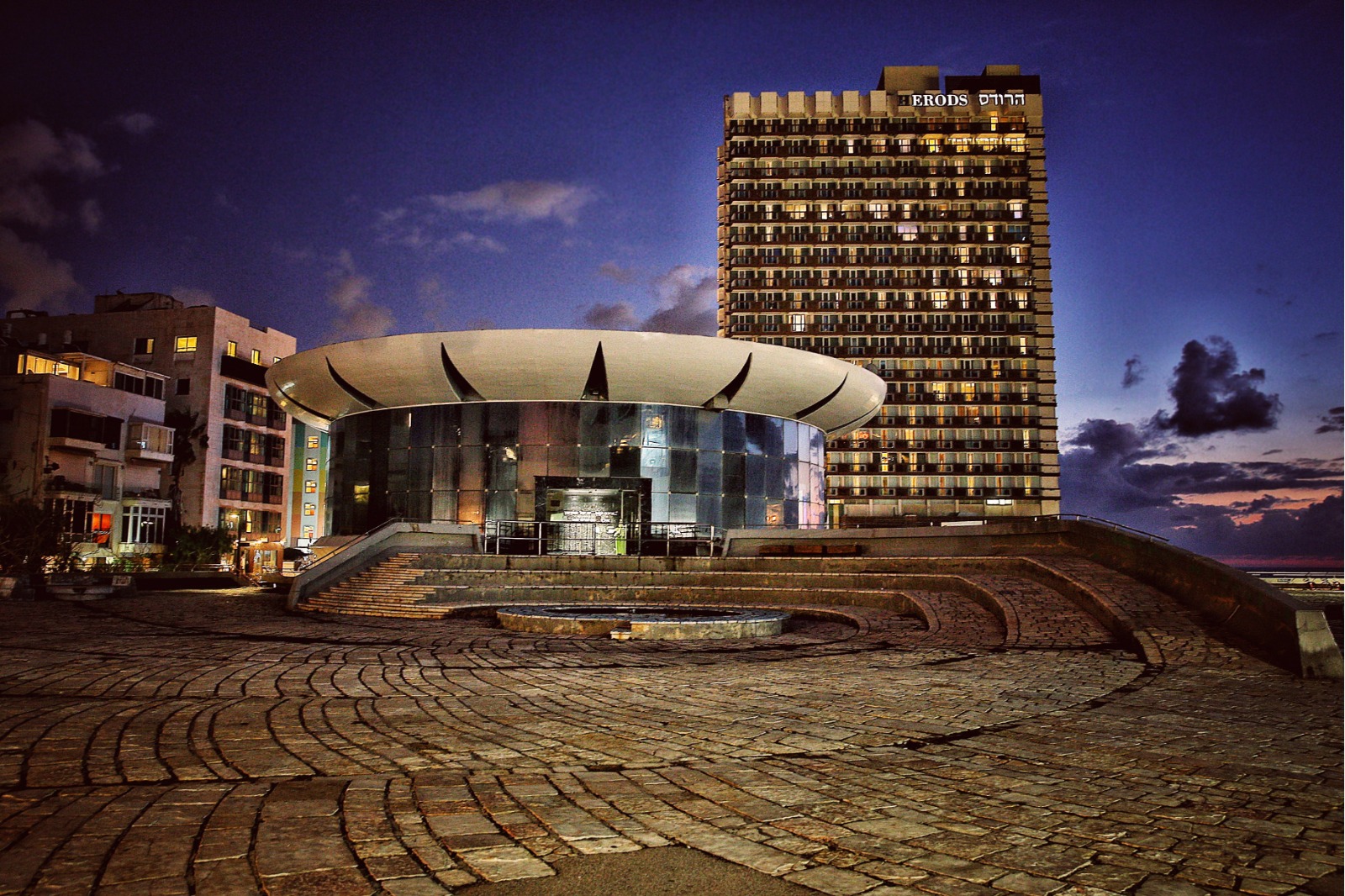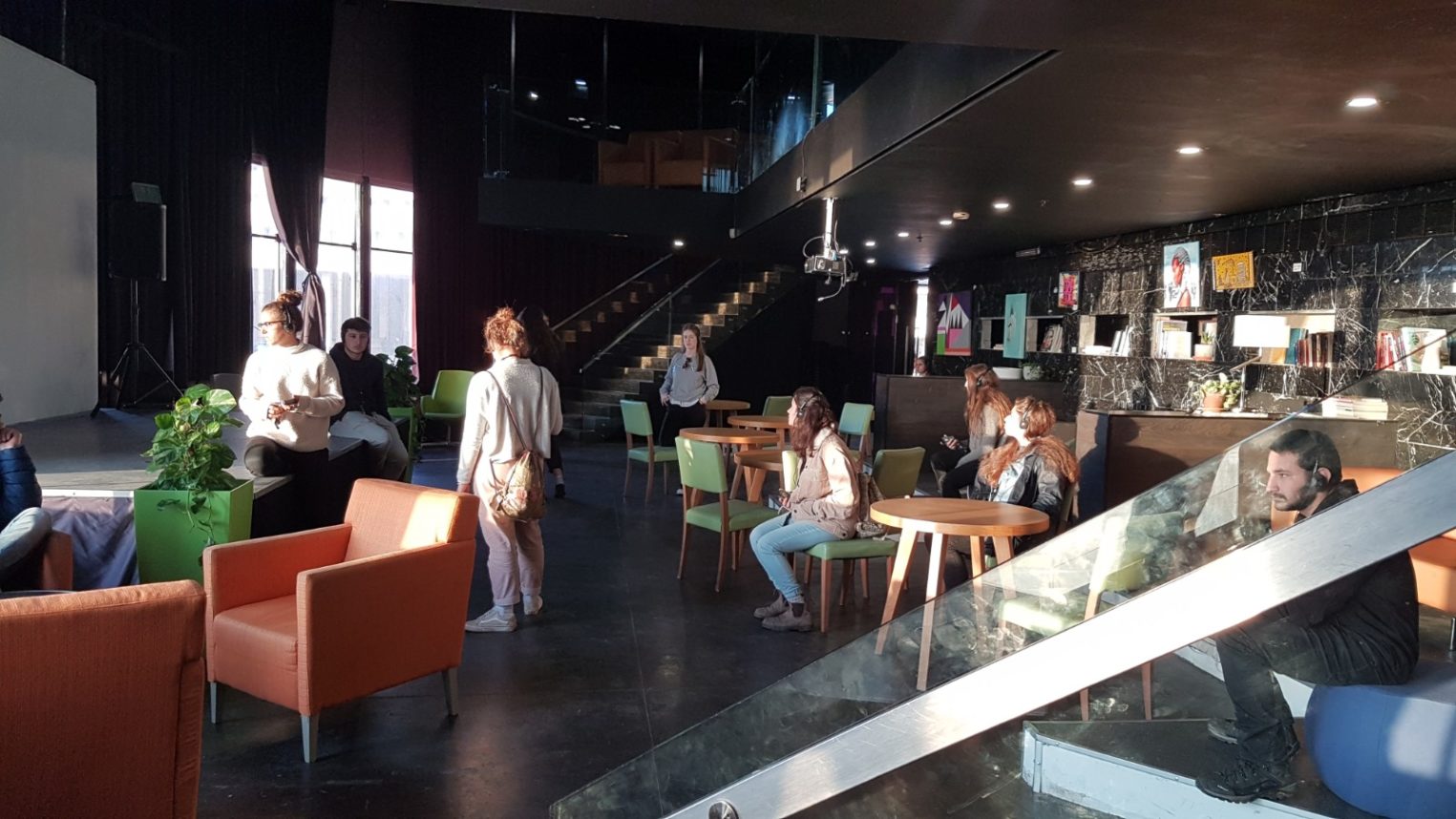
On the eve of Tisha b’Av 2019, Yakir Segev tore down the sheetrock in one of Tel Aviv’s most iconic buildings — the repurposed Pussycat Club — a strip club in central Tel Aviv.
That night, people would gather inside to mourn the destruction of the Temples and read from the book of Lamentations. The symbolism was not lost on Segev. The sheetrock had for years covered the rotunda’s glass windows and its licentiousness. With every ray of sun that burst through the exposed windows, the salacious became sacred. “It was an almost mystical experience,” Segev said.
A veteran social activist, Segev’s plan was to turn the building into a headquarters of Jewish learning and social impact. Today, its 9,000 square feet accommodates the activities of 600 nonprofits and on any given (non-COVID-19) month, some 5,000 people walk through its doors.
One area of activism that Segev stresses is helping at-risk women. Women come to the space — now named Israel’s Impact Center — and take part in a host of courses including self-defense, web design or cooking. It’s a far cry from the exploitation of women that the building used to represent. The Pussycat Club made headlines for allegedly housing a prostitution and sex trafficking ring. “What we did was a very important statement,” Segev said. “Not just to [remove] the club but to turn it into the total opposite of what it was.”

Today, Segev doesn’t shy away from the venue’s former past. “In the beginning, we thought, ‘Let’s go in and renovate it entirely so every remnant of its past would be forgotten.’ But we realized we just can’t compete with the story of the place. It’s too powerful. And people wanted to connect to it,” he said. “Every activity that takes place now is charged with a special significance because of that history.” Today, visitors can take part in an audio tour that showcases the history of the building.
The fact that the structure stands on Atarim Square overlooking the Mediterranean Sea on some of the costliest real estate in Tel Aviv is central to its appeal, Segev said. “Social activism often happens in the periphery. I wanted to take the best place in Israel, the heart of Tel Aviv — with all the money, the good life, the startups — and say, ‘Yes, here’s where we’re doing good.’ ”
Segev is grateful for the real estate group JTLV, which purchased the square in 2017. Owner Amir Biram refused to let the Pussycat Club continue to operate on his newly acquired asset. Segev knew Biram from his days at New Spirit, a Jerusalem-based organization that Segev chaired in the mid-2000s. New Spirit was founded to breathe reanimated life into the capital city and turn it into an attractive place for young people.
Despite years on the social activist circuit, Segev remains indefatigable. “It moves me still,” he said.























 More news and opinions than at a Shabbat dinner, right in your inbox.
More news and opinions than at a Shabbat dinner, right in your inbox.